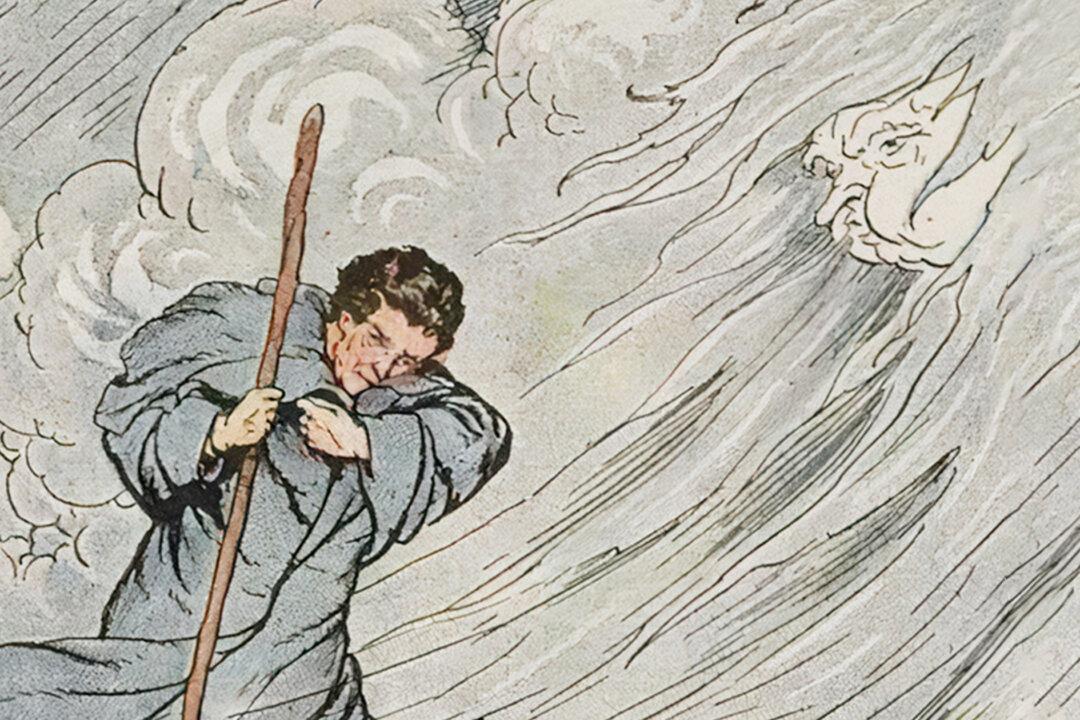The North Wind and the Sun had a quarrel about which of them was the stronger. While they were disputing with much heat and bluster, a traveler passed along the road wrapped in a cloak.
“Let us agree,” said the Sun, “that he is the stronger who can strip that traveler of his cloak.”






